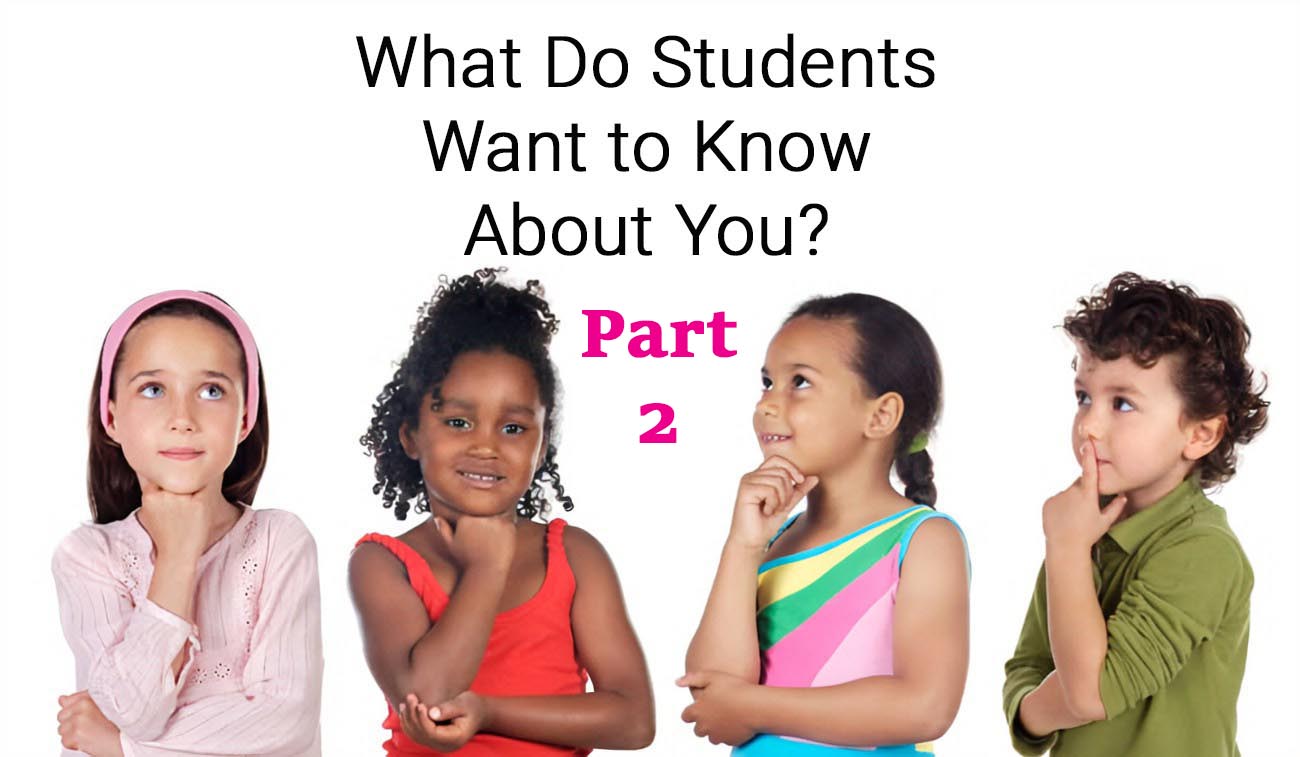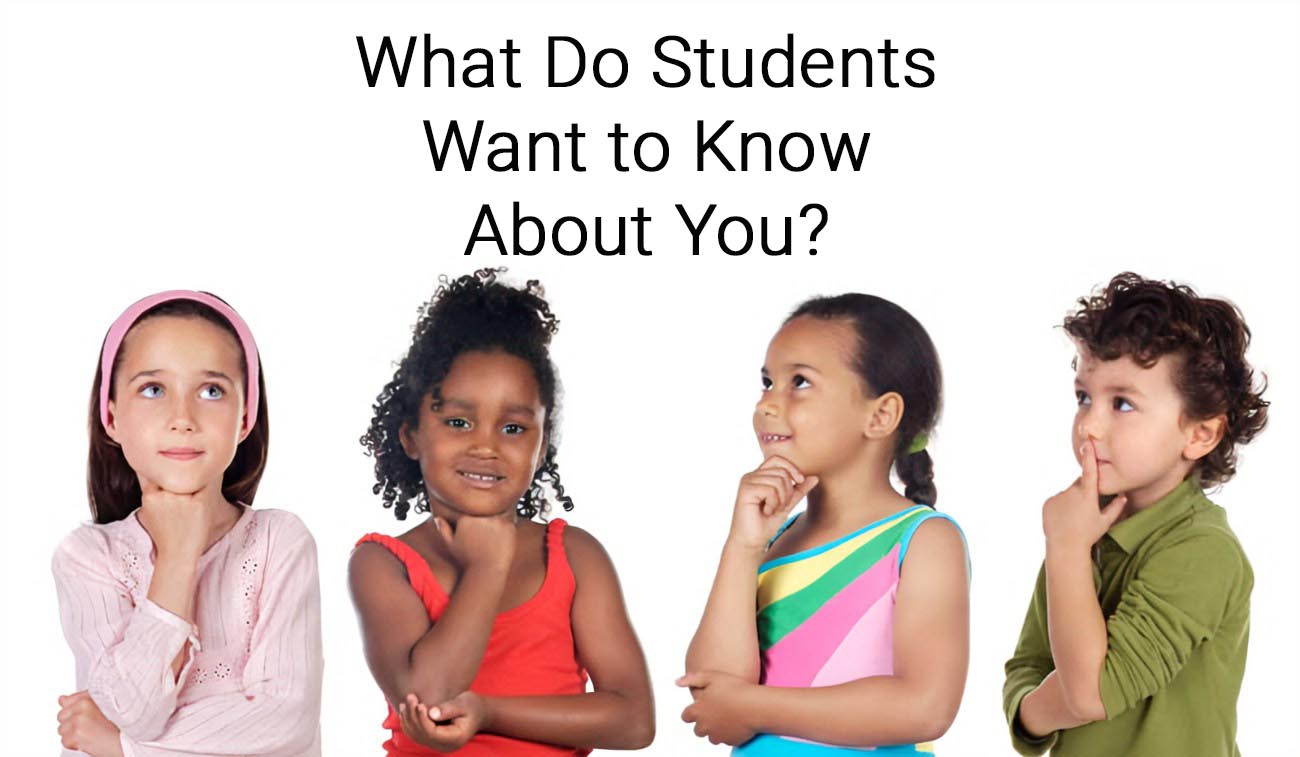So what do kids really want to know about you, their music teacher?
Your political leanings?
Your FICA score?
Your favorite instrument?
If you haven’t read “What Do Students Want To Know About You? –Part One”, check it out before continuing?
Got Part One covered?
Read on and see my top three things that kids want to know about you.
Triangulation
Students want to know if you are kind and empathetic to children younger than they are.
They triangulate and predict how you will eventually treat them by observing how you treat younger children.
Do they have the ability to see that in your classroom?
No, they’re all the same age.
Where they will observe this teacher behavior will be on the bus court, in the cafeteria, in the hallways of the school. They will see you without the artifice of a classroom around you. They will see you as a human being.
They will carefully observe how you treat younger kids when you are under stress.
When they observe you help a child open up their milk bottle at lunch time, when you show empathy and help to a child who's fallen and scraped their elbow, when you can take a knee, look a little one in the eyes, smile, and give a word of encouragement or praise, big kids take note.
They don’t need another adult to respond with the emotional content a parent. They want something different,
Provide it.
Similarities
In my case, the one thing that I told students that often astonished them was this: I was just like them at their age.
I would draw a line on a chalkboard that was about two yards long and it one end of the line, I wrote the word “you” and at the other end of the line, I wrote the word “me”.
Maybe I didn't wear a black suit and a tie or where expensive shoes – but I was like them.
In some schools I was able to tell kids that I grew up several minutes away from where our classroom was, which always made them wonder if I lived around their home.
I consoled them that if they didn't have some of the finer things in life, I was like them. For example, my family didn't own a car until I was six years old.
As I was sharing this with them, I would occasionally erased the line several times, each time redrawing it shorter and shorter, until at the end of my few sentences, the line was only about three inches long between the “you” and “me”, which allowed me to say, “You see, we're a lot closer and alike then you could probably ever imagine.
The Most Important Thing They Want to Know
What kids really have a need – not simply “want” – to know is do you really want and need to know about them.
This is easily one the hardest elements of being a teacher.
At least it was for me.
As I got older, I kept getting reassigned to larger schools. My last school had approximately 2,500 kids and every kid thought that aside from knowing their name that I knew their middle name, their pet’s name, and their favorite three colors. It was a lot of data.
I struggled.
Maybe it was my advanced age, maybe I was burning out, but just the elemental need to learn that many names was hard for me to accomplish.
It was the undertaking that I put the most energy into and, conversely, too often came up short.
Names are important.
I often reviewed names and faces from the online school data base before classes.
I tried to make up for my weak grasp on hundreds of names with a lot of “What do you think?”, “Tell me about that.”, “How did that make you feel?”, and other open ended questions that gave them opportunity to share and for me to shut up and listen.
The older I got, the more seasoned my skills, the better I was at being quiet and paying attention, the more skilled I was at listening instead of making sounds, the more I sought to understand rather than be understood, the better I got at helping how kids defined me in their minds.
When it comes right down to it, kids want to know that you have a soul, that you know how to engage it, that you employ it not because you want to but because there is no other way to be a musician than to lead with your soul.
If we remind ourselves that we are there to serve children and that they aren’t there to serve us, we will be on the right road.
We will be on the best path to telling kids everything they need to know about their music teacher.


 RSS Feed
RSS Feed